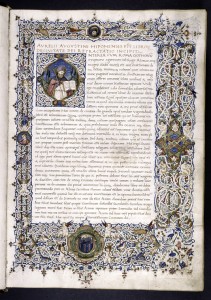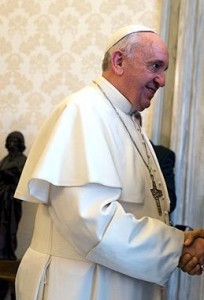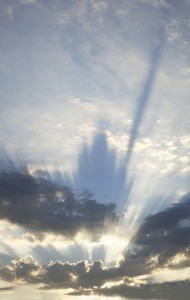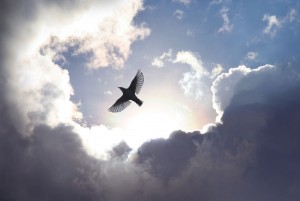When people become self-centered and self-enclosed, their greed increases. The emptier a person’s heart is, the more he or she needs things to buy, own and consume. It becomes almost impossible to accept the limits imposed by reality. In this horizon, a genuine sense of the common good also disappears.”
– Pope Francis, Laudato si’ (#204)
– Dr. Jaime G. Corvalan, MD, FACS
The recent visit of Pope Francis to Cuba and the United States has brought into focus something beautiful that is happening not only within the Church but with the unfolding of transcendent consciousness itself. There is a growing recognition of the interconnection of all life, of a divinity not separate from creation but one that infuses all life, all nature, all of creation.

I am so pleased and inspired to see that the grievous error committed upon nature, the feminine and indeed all life reflected in more than a thousand years of orthodox doctrine has been addressed, corrected and transcended by this extraordinary Pope! Dating back to St. Augustine and his 5th Century AD work, “City of God Against the Pagans,” a document which codified the gulf between God and Man, the Divine and Nature, orthodox doctrine has held that, because of the idea of Original Sin, humanity is fallen and nature, and the feminine, were equally stained and corrupt. Nature was devoid of divinity (for the Divine was separate and beyond creation) and could therefore be subject to the dominion of man.
This mistaken philosophical idea has paved the way for terrible, destructive actions and attitudes toward our natural world, and each other, and allowed for an economic philosophy that sees nature, and all life, merely as resources to be exploited, devoid of divinity, compassion and consciousness.

In the May 24, 2015 Encyclical, “Laudato si, mi’ Signore” (“Praise be to you, my Lord”), Pope Francis lays out a radically different relationship with nature, each other and with the Divine (or, as I would call it, the transcendent energy consciousness). From the beginning of the document, the Pope reflects his humble nature, addressing the encyclical not to the hierarchy of the Church but instead to ALL PEOPLE; this humility and compassion seems to reflect the heart of Francis, and is what is needed for the continuing unfolding of consciousness.
The focus of this Encyclical is to enter into “new dialogue about how we are shaping the future of our planet. We need a conversation that includes everyone, since the environment challenge we are undergoing, and its human roots, concern and affect us all.” (Laudato si’, #14). With the heart of a poet, Francis goes on to say:
This sister now cries out to us because of the harm we have inflicted on her by our irresponsible use and abuse of the goods with which God has endowed her. We have come to see ourselves as her lords and masters, entitled to plunder her at will. The violence present in our hearts, wounded by sin, is also reflected in the symptoms of sickness evident in the soil, in the water, in the air and in all forms of life. This is why the earth herself, burdened and laid waste, is among the most abandoned and maltreated of our poor; she “groans in travail” (Rom 8:22). We have forgotten that we ourselves are dust of the earth (cf. Gen 2:7); our very bodies are made up of her elements, we breathe her air and we receive life and refreshment from her waters.
Nothing in this world is indifferent to us.”
Laudato si’ (#2)
While Pope Francis and the Church still see a doctrinal separation between God and Man, he recognizes that, in practice, such a schism can no longer be used to justify our treatment of nature and each other. As he states,
“we must forcefully reject the notion that our being created in God’s image and given dominion over the earth justifies absolute domination over other creatures . . . This implies a relationship of mutual responsibility between human beings and nature.”
Laudato si’ (#67)
Ultimately, the publishing of this Encyclical, and the recognition on the part of Pope Francis and, as a consequence, of the Church, of the need for a new relationship between humanity and nature is a reflection of a new, emerging relationship with transcendent consciousness. While Francis goes into great and noble detail about the destruction and exploitation we have and continue to visit upon nature, the act of publishing this work signifies something even greater at work: the gradual shift of human consciousness, from one focused upon power, control and domination to, instead, one that operates from the heart (the 4th Chakra).
Recognition of our obligation to “till and keep” nature begets recognition of the web of all life and creation. In the greater scheme of things, this will be seen as a small but firm step toward the recognition of the divinity in each of us, in all of life and in all of creation. We are the stuff of divinity, of transcendent energy consciousness, and it is heartening to me to see the growing awareness of this reflected in practical action by Pope Francis.
Please click on this link to read the “Laudato si, mi’ Signore” in full.


